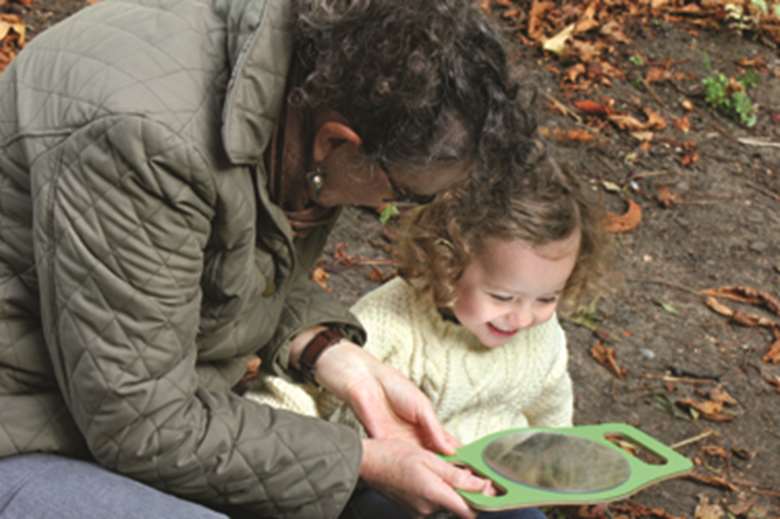Ask The Experts: Explore early learning curiosity
By Various
Monday, September 15, 2014
Our panel offers advice on enquiry-based learning, suspected sexual exploitation, school performance and managing youth debates.

What is enquiry-based learning and how do I support it at my nursery?
Enquiry-based learning is learning that stems from investigation and surprise - the sort of learning adults would describe as a "light bulb moment".
Babies love this type of learning and get a huge amount of enjoyment from activities such as seeing themselves in a mirror or playing peek-a-boo. Observe a toddler test out a pop-up toy and you will see they want to do it again and again.
Fun is a key element of learning but this is often undervalued. Enquiry-based learning is often spontaneous - a child notices something like a spider's web glistening in the rain and their innate curiosity is triggered. This often leads to questions, observations, reflections and new language and is best supported by an adult able to observe, engage and extend the child's learning.
Think about how to create a culture of enquiry-based learning that fits into your regular nursery routine, systems and training.
June O'Sullivan is chief executive of the childcare charity and social enterprise, the London Early Years Foundation
I am working with a young man who has started going missing from his foster placement. He is evasive about where he goes but a colleague thinks she may have seen him with an older man late on Saturday night in town. Should I be worried?
Young people who go missing from care are extremely vulnerable and at high risk of exploitation by adults. This includes boys and young men.
A new report by Barnardo's found almost a third of young people using sexual exploitation services are male - a much higher figure than previously thought.
Young men are often not perceived as being at risk because they act macho to mask their vulnerability. Shame and fear of being stigmatised can also make it harder for them to recognise or speak out about abuse.
I have worked with boys in care who have been sexually exploited by older men, taken to cities and given drugs, alcohol and money to pay for their silence. Some were brutally beaten when they attempted to flee.
You are right to be worried. Talk to this young man and offer non-judgmental support. Organisations like Barnardo's and Yorkshire Mesmac's Blast project can offer guidance and training.
Jeanie Lynch works for Barnardo's and has 25 years' experience of working with vulnerable children and families
GCSE results this summer are dreadful. Ninety per cent of schools have gone down, some by 20 per cent. What can I, as director of children's services, do?
The Regional Schools Commissioner now has a clear responsibility for academies' and free schools' performance so you will need to link up with their office.
Instigate an urgent review of what schools have been doing individually and together to drive improvement. Since they now have responsibility and the resources local authorities used to hold, they must account for what they've done and might do next.
There will be many parents worried and angry about what this means for their children so ensure you and your communication team is prepared.
Ultimately, show some leadership. Tackle the issue head-on with the schools, but not in a "blame culture" kind of way - none of them will have planned to do worse. Many will welcome some direction and a chance to tackle this in a collegiate way.
Peter Lewis is a freelance providing interim local authority children's services leadership, and a former DCS in Haringey
The brutal killings of journalists by Islamic militants came up as part of an ongoing programme of discussion and debate at our youth club. Two sets of parents have since complained their children searched the internet for violent coverage and stopped them attending. Any advice?
Discussing news stories with young people is a great way of getting them to talk about their feelings and engage with what is going on in the world but must be done responsibly, with a sense of potential outcomes.
Reflect on how the sessions were managed. Was this discussion topic appropriate? How did the session finish? Was there any follow up?
As youth workers, we can't control what young people access online. They may have sought out these videos irrespective of your discussion group but ask yourself whether it might have encouraged them.
Our role is to empower young people by giving them the information and confidence to make their own decisions. Explain to parents that your intention was to equip their children with an understanding of global issues.
Tracie Trimmer-Platman is senior lecturer in youth and community work at the University of East London
Email questions, marked "Experts", to cypnow@markallengroup.com.




